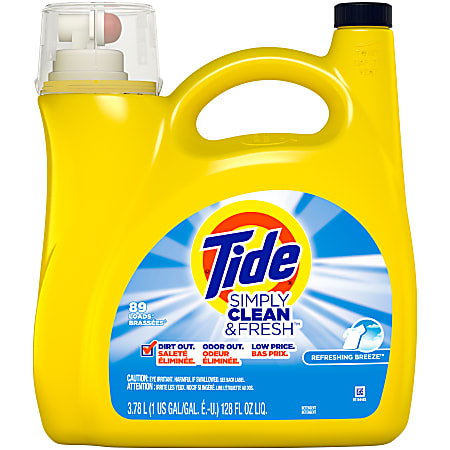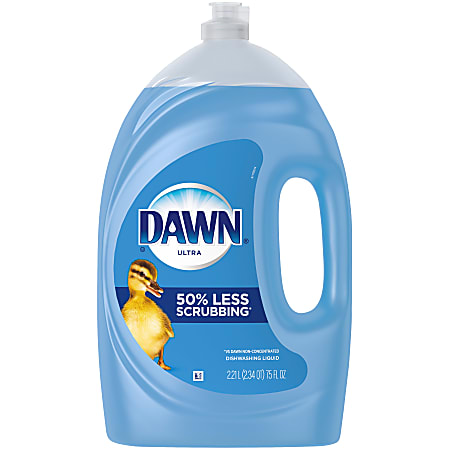Tide® Simply Clean & Fresh Liquid Laundry Detergent, Refreshing Breeze, 128 Oz
Make sure your clothing, towels and bedding is clean and smelling fresh thanks to this liquid laundry detergent. The detergent fights stains with a concentrated formula and leaves your articles with a refreshing scent.
Make sure your clothing, towels and bedding is clean and smelling fresh thanks to this liquid laundry detergent. The detergent fights stains with a concentrated formula and leaves your articles with a refreshing scent.
- Cleans deep into the fibers of clothes and helps remove tough odors. Works without the need for pre-treating.
- Concentrated formula for stain-fighting power.
- Large container provides enough for 89 loads.
- Refreshing breeze scent offers a pleasant aroma.
- Works in HE and non-HE washing machines.
Additional information
| Size (Container) | 128 oz |
|---|---|
| Product Form | Liquid |
| Total Contents | 128 oz |
| Maximum Number Of Launderings | 89 |






by Lisa
I like tide. Gets husband’s work clothes clean.
by Adam
Bought for HE washer and works well.
by Kimlee
I absolutely love when this detergent goes on sale. I am able to purchase a few to stock up. The cleaning power is amazing for the price. Such an excellent value.
by Vish
Good one brought with rewards and its nice liquid detergent.